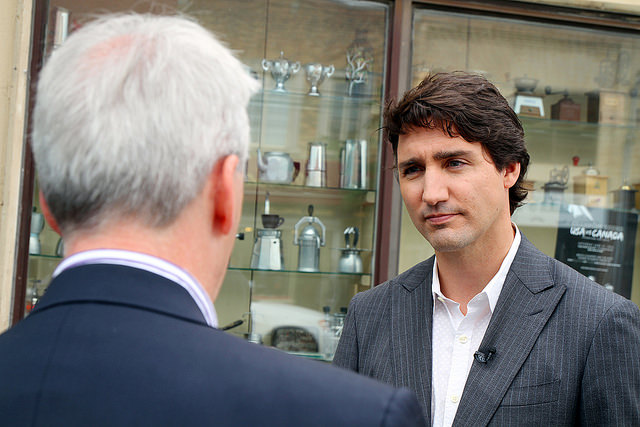
OTTAWA — The united partisan front maintained in Canada throughout 14 months of tortuous negotiations on NAFTA evaporated the moment a new agreement was announced, with political opponents scrambling Monday to ensure Justin Trudeau gets no credit for reaching a new continental trade deal — and reaps the maximum political damage for the concessions made.
Conservatives accused the prime minister Monday of “capitulating” to U.S. President Donald Trump.
“Now Justin Trudeau has to explain how we have a worse deal than NAFTA,” said Conservative Leader Andrew Scheer.
“Under this deal, Trudeau backed down on protecting Canada’s dairy farmers, he backed down on Canadian control on our auto industry, he backed down on Canadian sovereignty on setting prescription drug prices for Canadians.”
New Democrats similarly accused Trudeau of “caving in” to Trump and winding up with a worse deal than NAFTA.
Meanwhile, the common front the Trudeau government had forged with provincial and territorial leaders was also unravelling — particularly in Quebec where anger over the concession to allow more American access to Canada’s supply-managed dairy, poultry and egg sectors boiled over just as Quebecers were heading to the polls.
But while politicians hyperventilated, business leaders were largely heaving a sigh of relief that the deal, whatever its deficiencies, has averted an even worse scenario: no trade agreement at all with the U.S. and the prospect of Trump following through on his threat to impose economically devastating tariffs on Canadian-made autos and auto parts.
Even Canada’s chicken farmers, despite their disappointment at giving up market share to U.S. producers, expressed relief that “over a year of uncertainty” was finally over.
With the clock ticking down to a federal election next October, Trudeau is clearly hoping voters will be similarly more relieved at getting a deal than outraged at the concessions required to achieve it.
His biggest challenge will likely be soothing the anger of dairy farmers in Quebec, where his Liberals are hoping to make gains. But he is promising to compensate farmers for their loss of market share and has a year in which to make the case for the agreement in his home province.
As for his political opponents’ accusations that he caved in to Trump, Trudeau’s decision at the outset to involve prominent Conservatives and labour leaders in the negotiations is already helping to insulate him from the harshest partisan criticisms.
Scheer’s depiction of the deal as utter capitulation to Trump’s demands was starkly contradicted Monday by former Conservative prime minister Brian Mulroney, who negotiated the original free trade agreement with the U.S. and helped advise the Trudeau government. He called the United States-Mexico-Canada Agreement “a highly significant achievement for Canada” that will benefit all three countries.
“I said at the beginning that there is no Conservative way or Liberal way to negotiate a free trade agreement — there is only a Canadian way,” Mulroney said in a written statement. “This has been the government’s approach as well and I commend all — from the prime minister on down — who contributed to writing this vital new chapter in the ongoing drive for greater Canadian strength and prosperity.”
Rona Ambrose, former interim Conservative leader and a member of Trudeau’s NAFTA advisory council, tweeted her “congrats to Team Canada,” predicting that the deal will “help ease investor anxiety, stabilize trade-exposed sectors and reassure the world that North America remains committed to free trade.”
While the deal isn’t perfect, fellow advisory council member and former Conservative cabinet minister James Moore tweeted that the bottom line is, “free trade faced its greatest threat to date and free trade won.”
Unifor president Jerry Dias, whose union represents auto workers, noted that many of the key victories in the new deal were what’s not in it — a reference to radical demands initially made by the Trump administration and which ultimately were dropped, including demands for a five-year sunset clause and elimination of an impartial dispute-resolution mechanism.
Dias, Canadian Labour Congress president Hassan Yussuf and Teamsters Canada president Francois Laporte all welcomed enforceable labour standards and some other provisions in the new deal, while expressing concern about other aspects — notably the failure to persuade Trump to lift the crippling tariffs imposed last spring on Canadian steel and aluminum. That lapse prompted the United Steelworkers to blast the deal for selling out their sector.
However, Trudeau has a year in which to resolve that issue before he must face the electorate. And Foreign Affairs Minister Chrystia Freeland expressed hope that the tariff issue can be resolved now that the new trade deal has put “a little wind in our sails.”